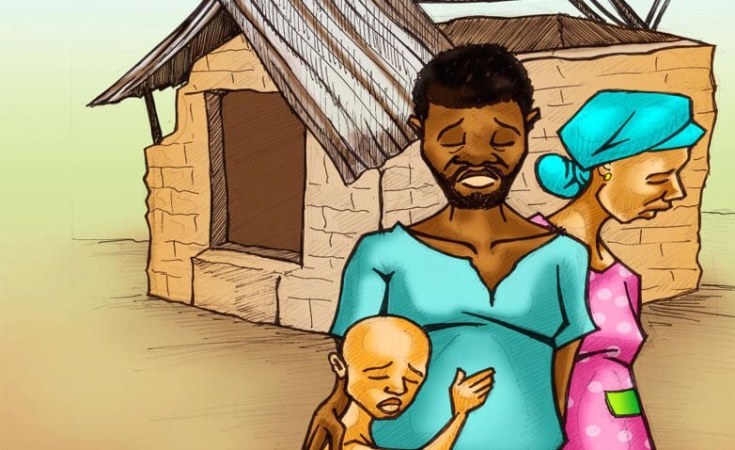 PRESS RELEASE
PRESS RELEASE
Washington — Today, the World Bank has discussed the next five-year Country Partnership Framework (CPF) for Nigeria with a $1.5-billion financing package to support a resilient post-COVID-19 recovery and help the government achieve its goal of lifting 100 million Nigerians out of poverty by 2030.
Here are 5 quick facts about Nigeria’s current challenges and opportunities:
“Africa’s giant” and the continent’s biggest oil exporter, Nigeria continues to face the economic impact of COVID-19. The country is projected to fall into its deepest recession since the 1980s, pushing up to 20 million Nigerians into poverty by 2022. GDP is expected to contract by over 4% in 2020 and as a result, government revenues could fall by more than 15 billion dollars this year.
With more than 200 million people, Nigeria accounts for about half of West Africa’s total population and one of the largest populations of youth in the world. About 3.5 million young Nigerians are entering the labor market every year.
Ranking 152 of 157 countries in the World Bank’s 2018 Human Capital Index, Nigeria has one of the lowest human capital scores in the world. One in five girls gets married before turning 19 and 19% of them are already mothers or pregnant with their first child.
Access to electricity and improving service delivery remain a priority, with 80 million Nigerians lacking access to grid electricity, and annual economic losses due to unreliable power are estimated at 28 billion dollars.
Conflict across the country has displaced millions from their homes and caused disruption to agriculture in the fertile middle belt, with particular impacts on women and girls.
However, current challenges should not obscure significant progress. Shubham Chaudhuri, Country Director for Nigeria, shares some of these development achievements and elaborates on the priorities of the new CPF and what lies ahead:
Q: In recent years, significant progress has been made, what are the main development outcomes that should be highlighted?
A: Nigeria has made some notable progress even within the challenging environment of increased poverty associated with growing insecurity and the economic downturn. The Government recently embarked on a set of bold reforms starting with unification of its multiple exchange rates, introduction of a market-based pricing mechanism for gasoline, eliminating subsidies and adjusting electricity tariffs. These measures allowed the government to cut non-essential expenditures and redirect resources towards the COVID-19 response both at federal and state levels; and improve debt transparency and accountability of its oil and gas sector. An important milestone, the country was officially declared free of polio in 2020. Notable efforts were made to increase accountability in the public sector, with 35 states publishing their annual budgets in 2020; and 15 states now operate a single treasury account.
Q: This Country Partnership Framework was informed by wide consultations with the population. Could you give us a snapshot of what you have learned from this outreach?
A: The team embarked on an extensive consultations process last November, seeking to hear from a broad range of stakeholders at Federal and state levels – ranging from private sector representatives, CSOs, academia, youth representatives and development partners – on what they see as the country’s key development priorities. Overall, a number of actors stressed the need for the CPF to reflect a vision for States and Nigeria as a whole, including the importance of alignment with individual state governments’ agendas. Others called for shifting from aid to investment, with requests for increased advisory support.
State Governors noted that World Bank Group support to states has been very important, and that it was well-aligned with their own commitments to strengthen public financial management and service delivery, in particular to improve primary healthcare systems and basic education, strengthen safety nets and improve the business environment at the subnational level to attract private investments. Members of civil society also called for the World Bank Group to monitor project implementation through CSOs and promote reforms to strengthen accountability. For the private sector, we were encouraged to take more risks, address the issue of skills gaps and invest in developing sectoral value chains and clusters.
A: The onset of the COVID-19 crisis has made the task that much more challenging and urgent because of the severity of the economic downturn and the decline in fiscal resources. Without decisive action to marshal the fiscal resources and tackle long-awaited structural reforms, Nigeria risks repeating the experience of the 1980s shocks, which set back the country’s development progress by decades.
To make tangible progress on poverty reduction, our engagement will focus on promoting faster, more inclusive, and sustainable growth, so that its citizens have greater opportunities for a better life. The CPF aims to support the government’s program and medium-term strategy, which presents a common vision as “one World Bank Group” to accelerate economic growth with better employment opportunities facilitated by building human capital, a more conducive business enabling environment, greater social cohesion and inclusion, and a plan to tackle the most persistent development challenges.
The new partnership between the World Bank and Nigeria will focus on these four key areas. © World Bank
Read the original article on World Bank.